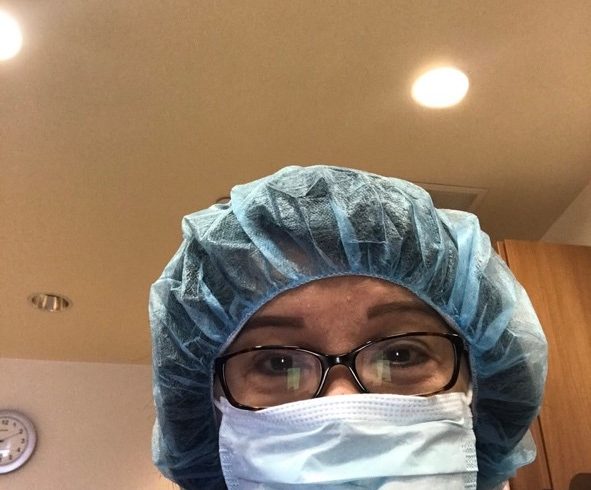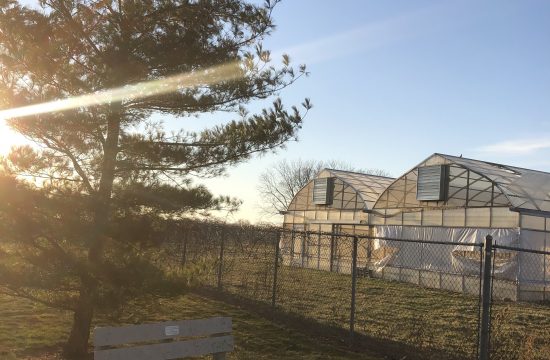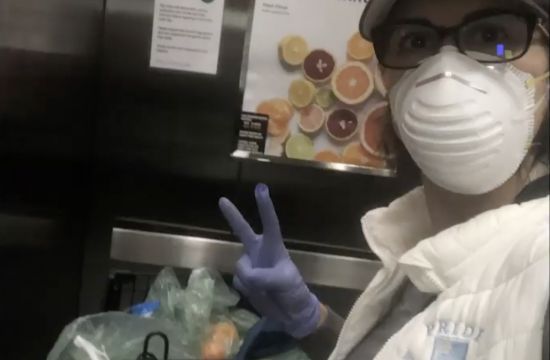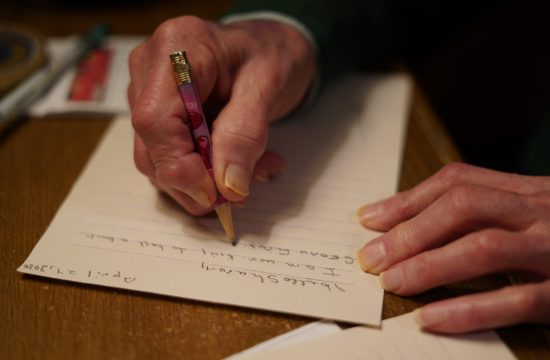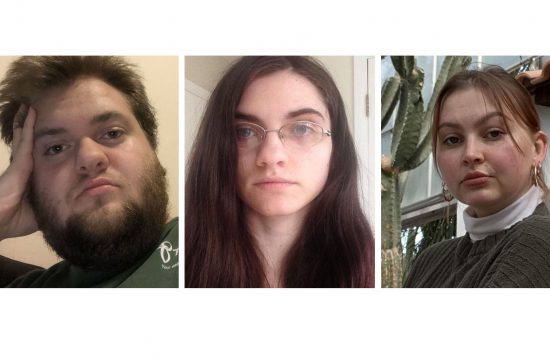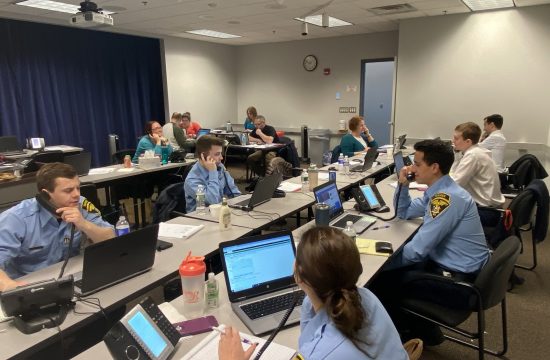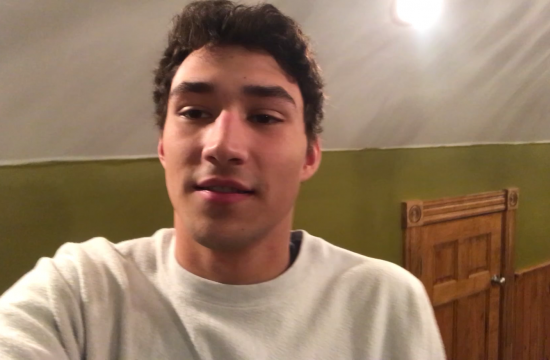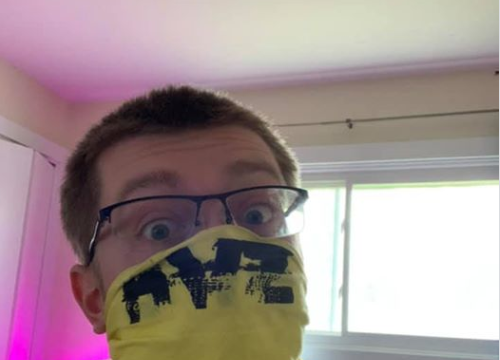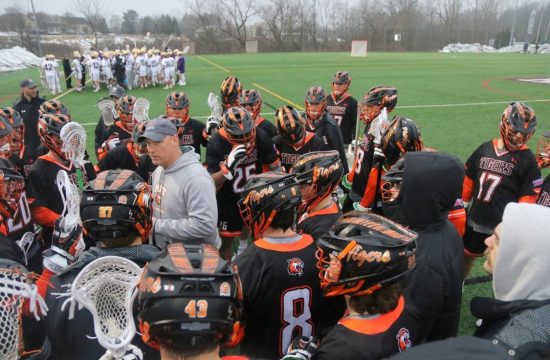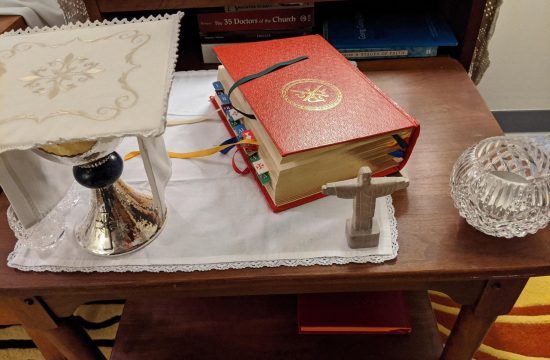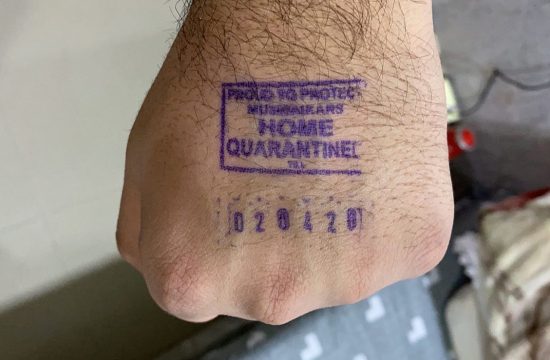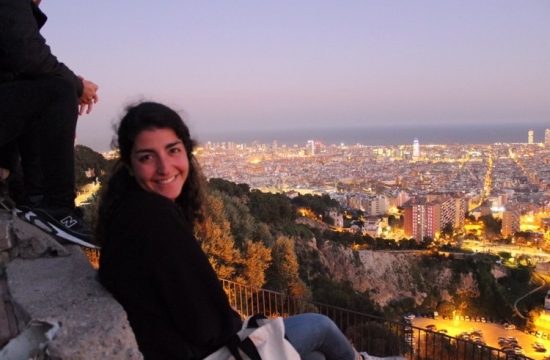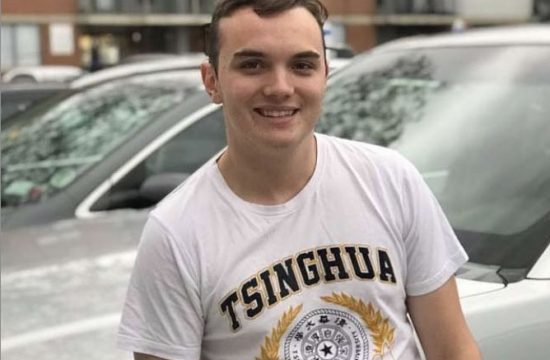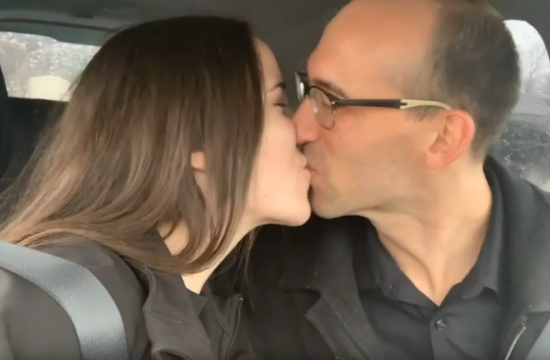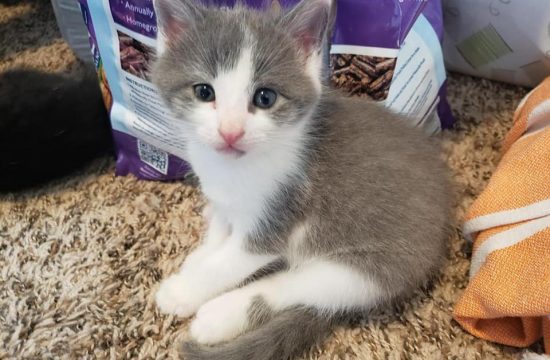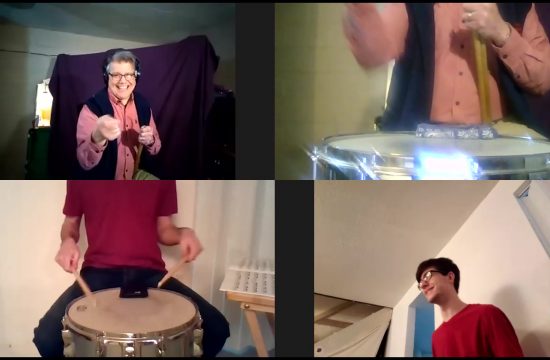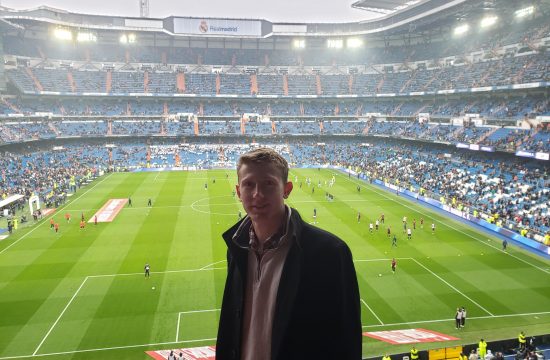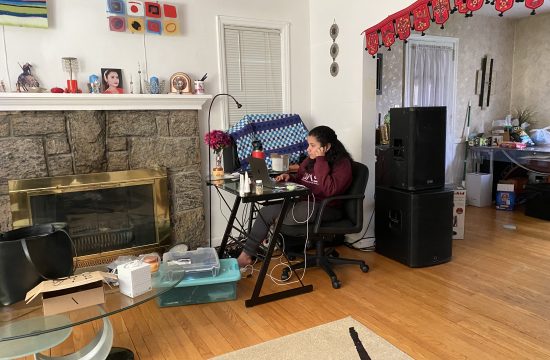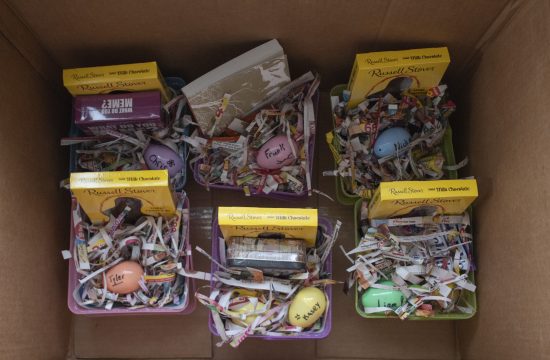by Andy Bernardez
All news reports and social media trends say the same thing — the COVID-19 pandemic has affected everyone’s daily lifestyle and threatens to continue unless a cure is found. Once I received news that RIT will switch to online classes, I had mixed emotions. I was happy because I could go back home to New Jersey and be with my family once again, but sad at the same time because I will miss seeing my friends every day. When RIT announced they will be extending spring break for another week, my family and I thought it was best to get all my belongings from my apartment. On March 14, we drove back to RIT to collect my textbooks, clothes, and other items we thought I would need.
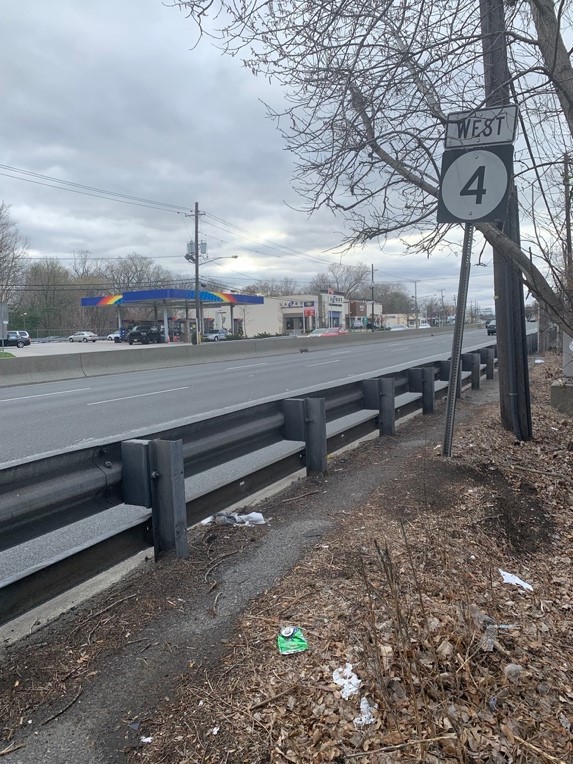
This is Route 4, the highway right next to my house that is filled with cars 24/7. Since COVID-19, it’s been completely empty with some cars passing by every few hours or so.
Photo: Andy Bernardez
Once I came back home, my whole life was turned upside down. Our house in River Edge sits right next to what once was a busy highway; now it is completely empty throughout the day, save for the occasional car driving by. This highway is usually filled for two reasons: road construction and people going to shopping malls. On weekends, cars from New York, Connecticut, and Massachusetts would crowd the highway and honk at each other to move out the way; they all flocked New Jersey’s local malls because the State does not charge clothing tax. I used to see these weekend crowds firsthand as a part-time sales associate at GUESS. But with the closure of public spaces like malls, I am stuck at home, worried because I have no job and no other way to make extra cash.
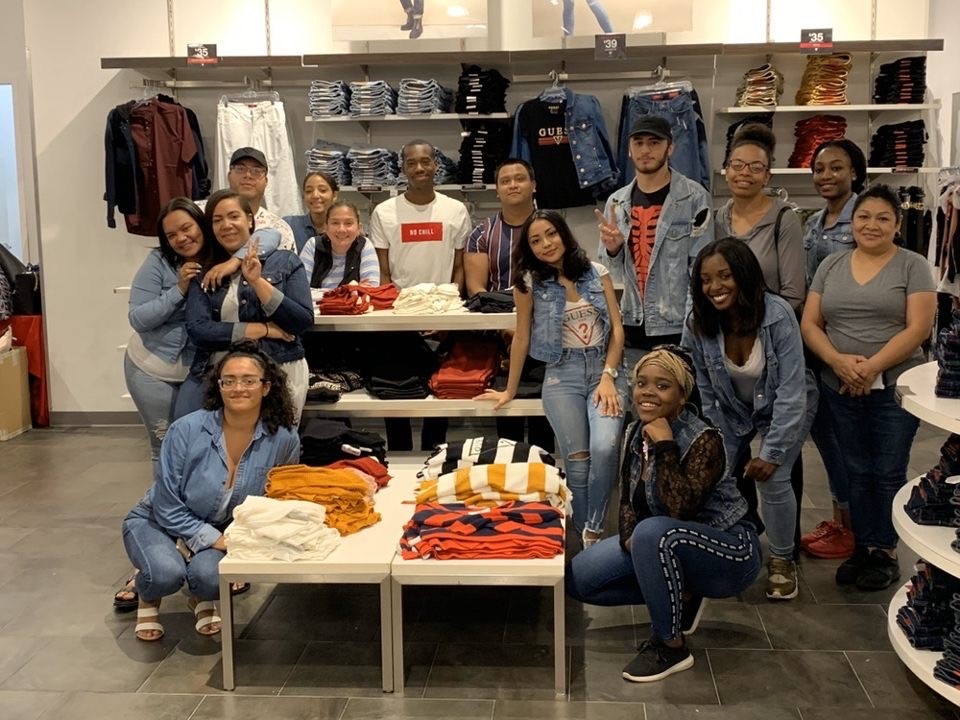
Besides no cars flooding the highways, Governor Phil Murphy issued a statement banning people from leaving their homes between eight pm to five am. My mother gets up at four am every day to go work in New York City as a registered nurse in New York Presbyterian’s cardiac catheterization laboratory. But due to the influx of COVID-19 patients in New York — now regarded in the media as the epicenter of the outbreak in the U.S., she was reassigned to COVID patients. Starting last week, she has been helping treat them by taking their temperature, giving them respiratory inhalers to breathe, and providing them soft and regular food. Because of her risk of exposure to the disease, she now has to take extra precautions to stay healthy and avoid contracting and passing it on to us at home.

Photo: Andy Bernardez
For one, she is required to take a shower before going back home and another one as soon as she gets home. Just this week, I heard she was in a conference call with the hospital administration; she was informed of a measure they were considering wherein nurses would be mandated to stay at the hospital to keep up with the increasing demand for patient care. My mother protested against this because she has type two diabetes and sometimes has constant foot pain. The truth is, she is in the best and worst position to help these patients and her hospital — best because even as more nurses call in sick, she has over thirty years of experience, but worst because her age puts her at higher risk of exposure and infection.

But I’m not the only one stuck at home; my father and sister have also been working from home, each claiming their own territories. My dad works downstairs doing office work, while my sister has transformed our dining room table into her own personal office as she continues her work in public relations. She is usually the one who inevitably wakes me up, as the sound of her conference calls with co-workers about article pitches for clients travels to my room. Meanwhile, my father is very quiet downstairs and spends his days looking at reports and opening emails. He doesn’t go on any calls and usually has free time in between tasks. During this time, he likes to take his bike up and down the cul de sac we live in or look up old Filipino movies on his computer and watch them.
And as for me, it’s been a challenge to stick to a routine. I try to wake up at the same time every day, keep up with schoolwork, and go to bed at a reasonable time. But after leaving for college, these are things my body is no longer used to doing at home. When I’m back in New Jersey, I’m used to sleeping in, staying up late, and earning extra cash through part-time work. Now, I keep myself occupied in between schoolwork; when possible, I squeeze in old sports games on ESPN reruns and catch up on my favorite shows like Single Parents, Stumptown, and Keeping up with the Kardashians.
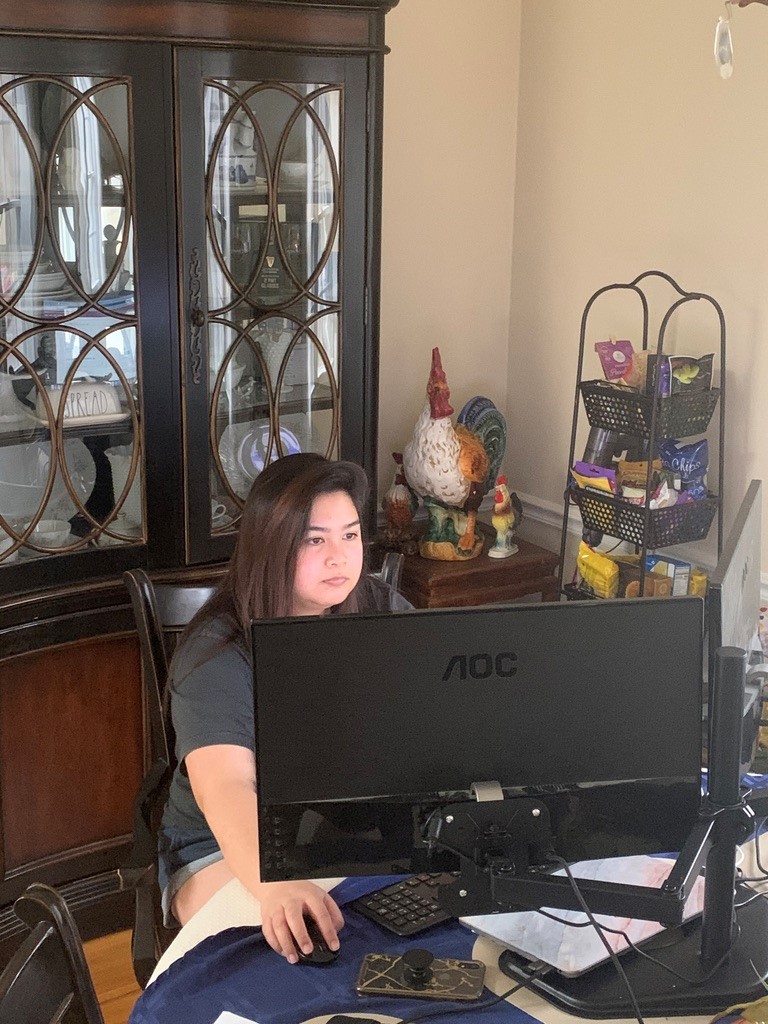
And when I run out of things to do, I think about where we would be and what our lives would be like once things go back to normal — no matter how that looks, or if there is a “normal” to go back to. I asked my parents and sister what they would do once this was over, and the answers varied. My mom would go out to get her nails done, eat sushi and go on a shopping spree; my sister would be right behind her. My dad said he couldn’t wait to go to local flea markets and see what forgotten treasures he can find. My family asked me what I would do — I told them I will go back to work and for a second job so I can save up to buy a German Shepherd puppy once I graduate from RIT; in other words, go back to the way things were and move on.

